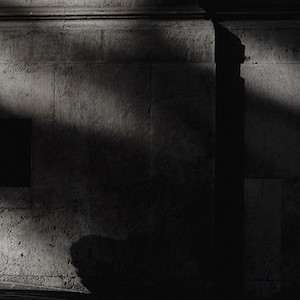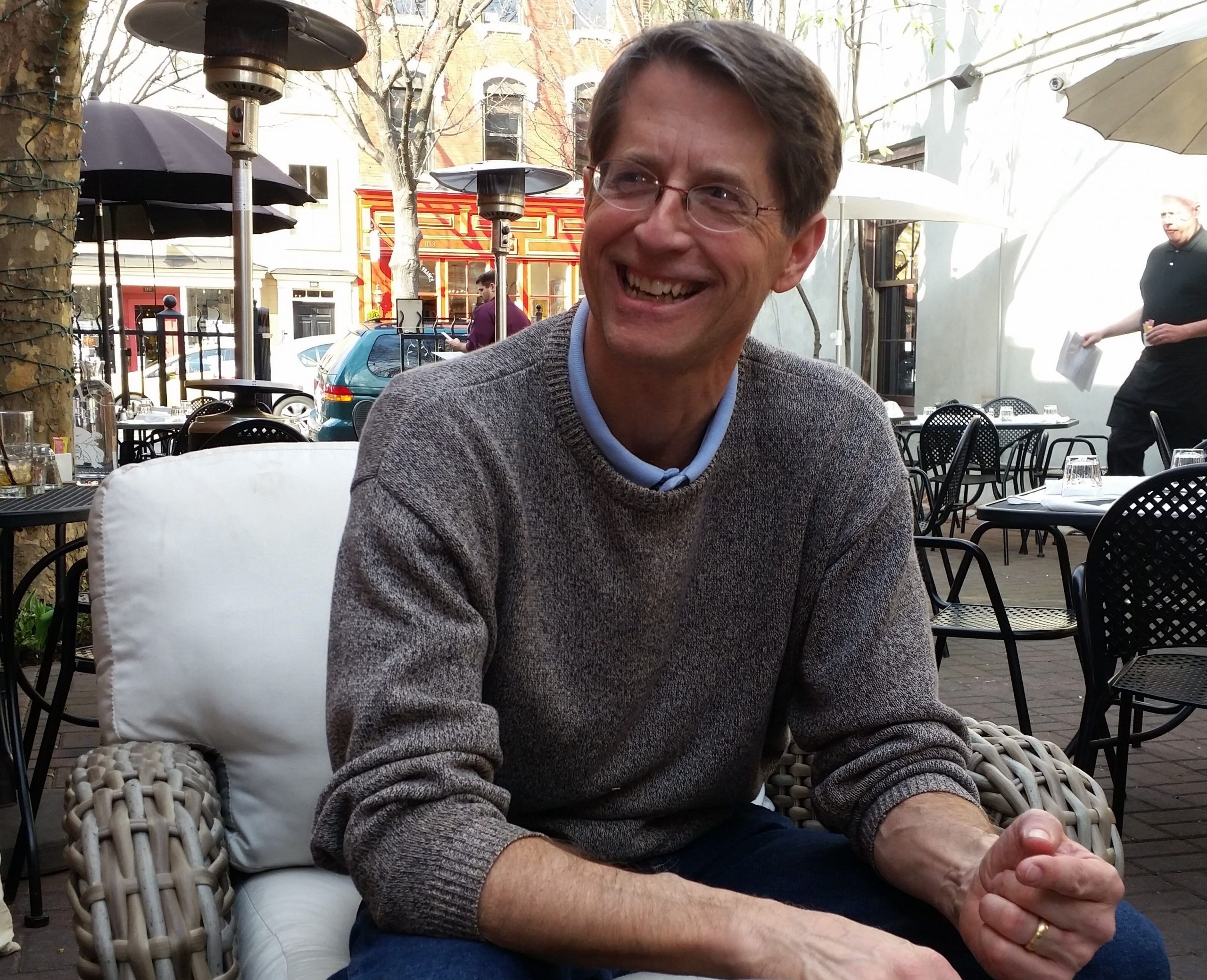Darkness with Music

A woman once killed herself behind my house. I lived next to a church, and on sunny days I’d exercise my dog in the narrow field between, or sit against the warm bricks of the church and read. Cars rushed by day and night, a constant presence we eventually stopped hearing. One sheared off our mailbox one day and dove into the neglected saplings by the road.
Just a few hundred feet from the church’s white pillars, the side yard felt faraway somehow, private. Its irregularly mowed margin abutted a brambly, half-fenced limbo between property lines. In the brush stood a wooden shed, so dilapidated it was barely a shape. Its rotted sides groaned with creeper vines, some of them wrist-thick. The wood didn’t snap but crumbled. It was hard to imagine it with fresh paint, rectilinear and upright. When I was a kid, roaming the woods or delivering papers, I’d sometimes find a toy or single shoe and try to imagine the life that had led up to it and left it behind.
I’d seen the car Tuesday in a far corner of the church lot and assumed it was abandoned. My golden retriever showed some interest, tiptoeing around, but he picked up his tennis ball when I called and galloped back for another throw.
Friday after dinner I walked out again, dog spinning and barking, and threw a ball as far as I could into the twilight. He streaked after it and my eyes, following, focused on the car. There were three people standing around it, arms folded as if the evening had turned cold. They were facing different directions, and they looked lost.
Walking closer, I noticed flies bumping the car windows and an unmistakable smell, one that farmers know but not most suburbanites. Gas companies add that odor to warn of leaks, knowing it touches our oldest selves and we’ll rise from our beds without knowing why, bodies for once speaking directly to the world.
Her face was the wrong color even in my quick glance. A plastic cup was placed carefully outside the car door. Soon two detectives arrived, one a woman I remembered liking from when I’d served jury duty. “Second decomposing body in a week,” she said as I signed a statement. The other had been dead much longer: “Second worst smell I ever smelled,” she said. The worst was a body in a rural barn; they’d had to fight rats.
The next day I found a snippet of crime-scene tape that I kept and still have, pasted in my journal next to the death announcement: “The memorial service for C_ M_ was Monday at _ & Sons. The body was cremated.” A third paragraph lists survivors. Between them, a misplaced fragment from someone else’s story: “Mrs. Johnson, 36, died Saturday.”
Later that summer I woke to bagpipes. While this seemed unlikely, a bagpipe doesn’t sound like anything else. Walking out barefoot I came to a side entrance stairwell, at the top of which in the darkness stood a man with a bagpipe. I must have looked ghostly in my tee-shirt against the black asphalt and oddly empty road. He nodded, took a breath, and kept playing.










